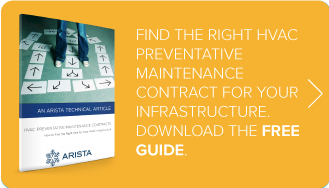This time of year, you’ve got so much on your mind: navigating the daily traffic gridlocks with so many bigwigs in town, picking out your Halloween costume for the office party, and of course, keeping up with the baseball playoff standings.
Who has the time to think about air filters? And what’s the big deal anyway? How could a little thing like a furnace air filter really make a difference in how your furnace works this winter?
It makes a huge difference, actually, and it takes less time than choosing your picks for the football pool.
The air filter’s job is to keep dust and debris out of your heating and air conditioning equipment. You’d be amazed how much builds up on there in a very short time. Just think about the smog in Manhattan and the dust your cleaning staff picks up every day in your building. Imagine how much grime would accumulate if you didn’t clean for a month. That’s how much debris is clogging your air filter, and much more if you haven’t done it in a while.
If you’re still skeptical, go pull out that air filter and take a look for yourself. Disgusting, right? That’s why Energy Star recommends changing the air filters in your central air conditioner, furnace and/or heat pump every month, especially during the peak seasons when your HVAC system equipment is heavily used.
Here’s what you stand to gain:
1. Lower utility bills mean more money in the bank
When that air filter is clogged with dust and debris, it can no longer protect your furnace. The grime gets into the equipment, coating the moving parts and slowing them down. It also impedes air flow through the system, which is critical to its efficient operation. All this means that your furnace has to run longer and work harder to heat your building, using more energy in the process. Changing your filter monthly can save you up to 15% on your utility bills.
2. Improved air quality and reduced allergens means better health
Remember all that dust you saw on your dirty filter? Now realize that you and everyone in your building are breathing that in every day. When the air filter is so clogged that it can no longer remove the contaminants from the air, they wind up in your equipment, passed into the ductwork, and distributed throughout your occupied space.
In addition to dust, there are worse things that you can’t see being circulated in the air, including bacteria, mold and viruses. It’s no wonder that so many people start getting sick this time of year.
This is especially troubling, and even dangerous, for people with allergies, asthma, and other breathing difficulties. In the worst case, you could wind up with a case of Sick Building Syndrome on your hands. Ask your NYC HVAC service provider about filters with a MERV rating of 10 to 12 to minimize pollen and other allergens.
3. Fewer breakdowns and longer equipment life mean less stress
When your equipment becomes coated with a layer of grime and debris due to a clogged air filter, the strain causes parts to fail and results in expensive repair bills for you. Notice that we’re not saying “may” cause parts to fail. This will definitely happen to you if you neglect changing your filters and maintaining your system; it’s just a matter of time.
Speaking of time, you can also be sure that your furnace will last considerably less time if you neglect it. Most commercial furnaces are designed to last 15 to 20 years. The buildup of debris over months and even years can shorten its life by as much as 5 to 10 years.
Also keep in mind the cost of lost business while you wait with no heat to have your furnace fixed or replaced.
It’s so easy, even a cave man can do it
Having your air filter changed is as easy as making a call to your trusty NYC HVAC service provider. He can advise you on exactly the right filter for your equipment, get you good prices, and even order multiple filters so you can change them yourself in between HVAC tune-up appointments.
What’s an HVAC tune-up, you say? It’s hvac preventative maintenance that you should be doing at the beginning of the heating and cooling seasons to clean and check your furnace and air conditioning equipment, and keep it performing efficiently. This fall, bring in a certified HVAC service tech to take care of your filters thoroughly clean your equipment and ducts, check electrical connections, check for carbon monoxide leaks, calibrate your thermostats, and check parts and overall condition of the unit.
Interested in HVAC preventative maintenance, but afraid it’s too expensive? It doesn’t have to be. A reputable provider can create a plan that’s right for your equipment, your needs and your budget. To learn more, take a look at our free guide to HVAC Preventative Maintenance Contracts: How to Find the Right One for Your HVAC Infrastructure.

